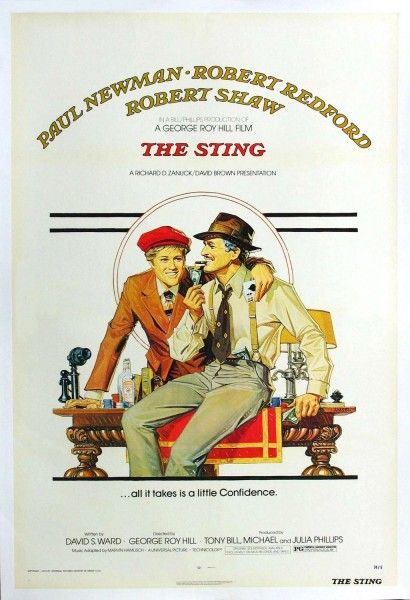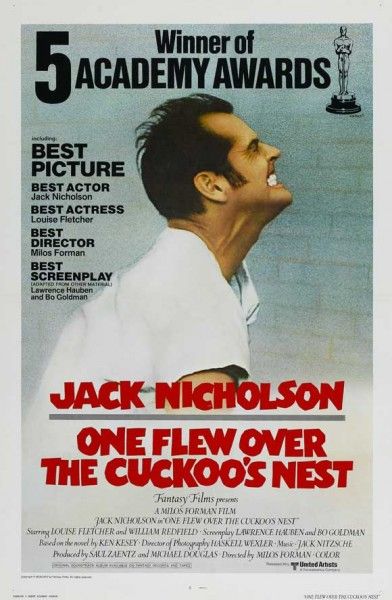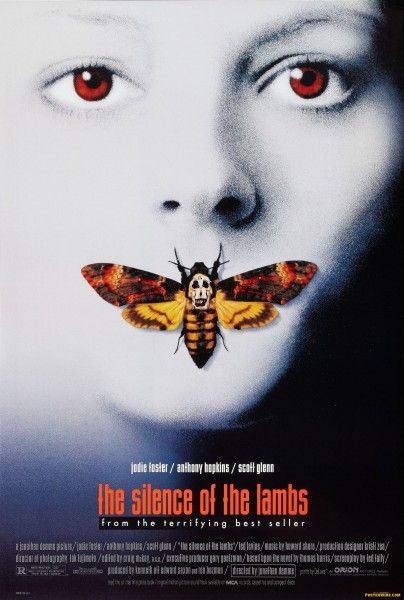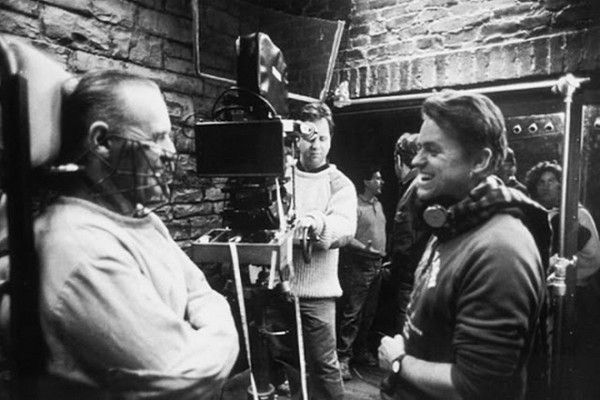From agent to studio chief to producer, Mike Medavoy has been involved with over 300 feature films, 17 of which have been nominated and seven have won Best Picture Oscars. He has played a role in the success of many of the best American films over the past 35 years, including One Flew Over the Cuckoo’s Nest, Rocky, Annie Hall, Apocalypse Now, Raging Bull, Platoon, Amadeus, Robocop, Hannah and Her Sisters, Caddyshack, The Terminator, Dances With Wolves, The Silence of the Lambs, Sleepless in Seattle, The Fisher King, Legends of the Fall, The People vs. Larry Flint, The Thin Red Line, All the King’s Men, Zodiac, Shutter Island, Black Swan, and so many more. And with a long list of projects currently in development and production, he’s clearly not interested in slowing down, anytime soon.
During this exclusive phone interview with Collider, Mike Medavoy talked about the secret to his professional success, what originally attracted him to this business, what makes him want to get involved with a project, the films he’s most proud of, what he remembers about the development and production of The Silence of the Lambs, which of his current projects he’s most excited about, and the greatest challenges in getting movies made now.
Collider: You’ve had the kind of long-term career in this business that most people only dream of having. What do you think the secret to your success has been? Do you think it’s because you’ve stayed focused with blinders on, or is it because you’ve learned to adapt to the changes that happen?
MIKE MEDAVOY: In most cases, it’s a combination of a lot of things. It’s partly the good fortune of being in the right place, at the right time. It’s partly adaptability to the times. I look back at my parents and I think about what they went through, in order to adapt. My mother was born in Manchuria to Russian Jewish parents, and my father was born in Russia to Russian Jewish parents. They moved to China, and my dad was a garage mechanic who went to run one of the parts of the Shanghai telephone company while my mother was in the dress business. When they went to Chile, they adapted to that. When they went to America, they adapted to that. And they wanted their children to do better. I’m an immigrant. I think I’ve been fairly conscientious about trying to figure out the things that are really important. The questions that all of us ought to ask are, who am I, where am I going, and why am I here? I think those questions and the constant self-discovery of myself, in trying to figure out who I am, are important. I think I’ve answered those questions for myself. It’s never been about money. It’s even less so about status and awards. I’ve gotten all the awards that I could have ever dreamt of, and I’ve gotten a life that I couldn’t have dreamt of, but I’m still young enough and energetic enough to want to continue and to want to do better things. People will not remember me. At the end of it, just my family and a few friends will remember me. But, they’ll remember the stuff that I did and what my contribution was. They may argue with some of that because I’ve never seen any successful project that didn’t have a lot of fathers and mothers, but when it comes to pictures that didn’t work, everybody disappears rather rapidly.
To be successful in this business, there are so many outside factors that really have nothing to do with you and that you have no control over. Do you really just have to want to make it work and stick with it until it does?
MEDAVOY: Yeah, but I think you need to do more than that. You have to really be responsible for the work that you do and feel some sort of pride about what you do, as opposed to doing something just for the money or just for recognition. You really have to figure out exactly what it is you want. If you look at my career and see the selections that I’ve made, over the years, whether it was in the clients I represented, and there’s a huge list of those, or the movies that I put together, in some instances, maybe I was just very lucky. It’s never solely about me. A lot of people played a part in it. It’s what I bring to it that made people see it differently, and the fact that I’ve been doing it as long as I have gives me something. People go, “Oh, my god, you probably know more than anybody!” And the answer is no, but I know what I want, I know what I like, I know what I don’t like, I know what I feel good about, and I know what I don’t feel good about.
Would you say that what attracted you to this business is why you’re still a part of it today, or has that shifted?
MEDAVOY: It’s partly shifted because it’s no longer about glamour. That part of it is gone. But if you think about when I came in, the ‘40s were obviously the Golden Age of film. I came in, in the late ‘60s, but the work that I did really started in the ‘70s. The three movies that I put together and had something to do with were Jazz, Young Frankenstein and The Sting. That really is the ‘70s. People always talk about the Golden Age of the ‘70s, but when I was coming in, the Golden Age was the ‘40s. The people that I met in those years, I put up there. All of those great people from that period, who I met and became friends with, was a different period of my life. It was a fantasy time that I could live in because I went to see them on a huge screen. I went through the late ‘60s and ‘70s, the ‘80s with Orion, the ‘90s with TriStar, and then the mid-‘90s with Phoenix, to this day. It’s been 50 years, which is five decades of things.
You still have such an active career now. What is it that gets you interested in a project and makes you want to get involved?
MEDAVOY: It’s great to be able to tell stories with characters, whether they’re good or bad. In today’s world, I prefer the hero to the bad guy. But, I also get to meet and mingle with all kinds of people. From ‘82 until ‘94 or ‘96, it’s been a combination of being politically active with candidates and active in policy think-tanks, and being on the Council of Foreign Relations, on the board of the Kennedy school, and on USC’s public diplomacy school, is another facet of me that hopefully makes me a little more interesting and curious. A lot of it is about being curious. I’m curious about everything. I’m curious about who you are and what you do, and I’m curious about what everybody is doing. How do we get to a world like this? I’m fascinated from every point of view that I can think of. Everything interests me. There’s not a thing that you could talk about where I wouldn’t go, “Wow, I hadn’t thought of that.” And sometimes, I know how to make that into a film.
It’s easy to read about the successes, but how many times over the years did you get close to something that you were passionate about and wanted to get into production, only to have it fall apart? And how difficult is that to deal with, no matter how many times it happens?
MEDAVOY: Very difficult. And how about the times when you thought it wasn’t a good idea because of some reason or other, and then you’re proven wrong? Good Morning, Vietnam is a good example of that. I didn’t do Good Morning, Vietnam because I was a newscaster in the army and I thought, “That’s not the way it is.” Why didn’t I move faster on All the President’s Men, when I could have? I can think of lots of disappointments and lots of reasons for not doing them, but you move on, beyond that. I don’t want to live in yesterday. I really don’t. I can’t live in yesterday because I can’t remake it. I can move forward. I can look forward and say, “I could do that.” You can obviously do more than one thing, at the same time. I’m not one of those who can’t chew gum and talk or walk. I can actually chew gum, talk and walk.
Of all the films that you’ve had a hand in, and there are many, which are you the most proud of?
MEDAVOY: All the ones that we did that were good, like Dancing with Wolves, Network, Raging Bull, One Flew Over the Cuckoo’s Nest, Platoon, Bound for Glory, Annie Hall, Philadelphia, Amadeus, Rocky, The Silence of the Lambs and Apocalypse Now. I’m proud of all of those, and I’m proud of whatever involvement I had.
Even though The Silence of the Lambs is hitting its 25th anniversary, it’s still on many people’s lists of Best Films. It’s interesting to think about the film it might have been, if Gene Hackman and Michelle Pfeiffer had taken the roles that Anthony Hopkins and Jodie Foster ultimately played. What do you remember about the experience of being involved with that film, and when you look back on what it ultimately became, how do you feel about it?
MEDAVOY: Everybody remembers everything a little bit differently, but I was thanked at the Academy Awards for having sent the material to the director, Jonathan Demme. I remember Hackman putting up half of the money to develop it. I remember that Demme was going to do another movie that my cohorts in New York wanted him to do, and they were very upset at me for having sent him the material and getting him off of the other movie. I remember the casting of Hopkins and the argument about who should play the female part. I remember the fact that, when the picture won the Academy Award, I had just gone to TriStar and started a movie that was also nominated for an Academy Award, Bugsy. It was interesting that, at the Academy Awards, Jonathan Demme thanked me because I’m sure Warren Beatty wasn’t too happy about the fact that he had a movie that didn’t win the Academy Award. I remember Bob Sherman, who used to work with us at Orion, bringing in the book and giving it to me. He had a lot to do with bringing it to me. And I remember Hackman deciding that he wasn’t going to do it because he thought it was too violent. I remember Demme going to London to meet with Tony and talk him into it, and then coming back and telling me about it and me not being sure about that decision because, after all, he’s Welsh. Jodie came to me about wanting to do it, and I thought her enthusiasm, alone, was worth doing it with her, so I talked to Jonathan about it. The discussions about various members of the cast was interesting because we all have different thoughts about who did what, when and how, but I don’t think it matters. The movie turned out to be great. Jonathan did an unbelievable job. I got criticized for wanting Jonathan to direct it because Jonathan had never directed anything like that, but I had seen work that he did and I thought that he could.
Looking ahead to the future, what do you currently have in development or in production that you’re most excited about getting out there for people to see?
MEDAVOY: We did this film called The Promise, which has a great cast (including Oscar Issac and Christian Bale) and great story. It’s a love story, very much in the vein of Doctor Zhivago, but set against the background of the Armenian genocide. It’s certainly never been done and it took a lot of courage to do it. The people who put up the money are terrific people and they wanted this story told. There’s a movie I’m talking about doing in Shanghai, hopefully before the end of the year. There’s a comedy I’m working on with Rob Riggle, which is pretty funny. There are also a couple of other things that I’ve got on the plate that I want to do. I’m going to do Martha Raddatz’s book, The Long Road Home, which is about an incident in Baghdad where the most soldiers got wounded and killed since the Vietnam War. I’m also going to tell the story about what happens on the homefront, before and after. I don’t think that story has been told, and it certainly hasn’t bee told the way that we’re telling it. There are a few other things that interest me. I’m fascinated with this book that we bought, called The Armageddon Letters, which is about Krushchev, Castro and Kennedy, the Bay of Pigs, and the aftermath. So, I’m really busy. I have a lot going on. I’m not one to sit around and do nothing.
What do you see as the greatest challenges in getting movies made, these days?
MEDAVOY: It’s really hard to do. I think it’s going to be fascinating to see the Chinese money coming into the marketplace. The fact is that more people in China will see movies next year than are seeing them in America. There are probably going to be some changes here, as far as how movies get released, but also how they get made because it’s really expensive. All of the rules are going to be rewritten and I’m trying to figure out, right now, how they’re going to be rewritten. Since I’m not writing the rules anymore, I’m not in the middle of doing that, so I’m waiting to see what it’s going to be. Once I’ve figured it out, then I’m certainly going to adapt.
Do you get excited about the changes that are coming, or is it a bit terrifying?
MEDAVOY: I’m not one to want to constantly repeat myself. I have a very low threshold for boredom. I don’t want to be bored. It’s really hard for me. Some people don’t mind it, but I’m not one of those people. I keep moving. I have no idea when I won’t be here. That could happen, at any time. So, I’m constantly looking for ways of doing things bigger and better, but not necessarily bigger because they cost more. There are ways of saving money today, in terms of production. There are lots of states that are helping with tax incentives. A lot of it is being done with visual effects and photographic effects. Yes, it’s going to be reinvented, and hopefully I can help. You want to get to a point in life where you’re respected for what you do, and I think I’m there.





